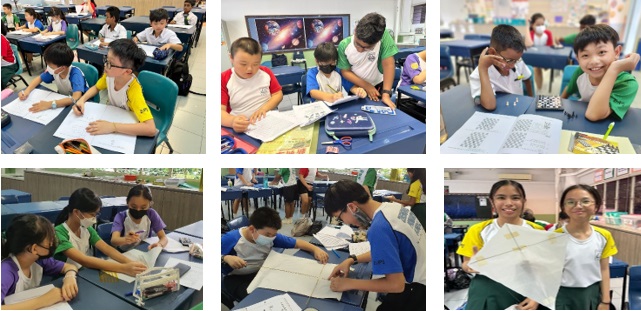Mathematics
Mathematics
Vision
Every student a thinker and a resilient problem solver.
- To develop our students to be STAR problem solvers, the department has adopted the 4-step Poyla Problem Solving strategies in the teaching of Mathematics in Zhenghua Primary School.
| S | Study to understand the question (Underline important information) |
| T | Think of a plan (Choose a suitable strategy) |
| A | Act on the plan (Write equations and show working) |
| R | Review: Check your answer |
Mission
-
To build a strong Mathematical foundation in students.
-
To foster joy in the learning of Mathematics.
-
To engage students through various learning of Mathematics.
-
To engage students through various learning experiences.
-
To develop reasoning and communication skills in students.
-
To give students opportunities to appreciate and apply Mathematics in real life context.
Department’s Focus
-
We believe that every child wants to and can learn. The Math Department aims to enable our students to:
-
acquire Mathematical concepts and skills for everyday use
-
develop thinking, reasoning, communication, application, and metacognitive skills
-
build confidence and foster interest in Mathematics.
-
Key Approaches
1. Using Concrete to Pictorial to Abstract (C-P-A) Approach
To enhance conceptual understanding, our teachers make use of CPA (Concrete to Pictorial to Abstract) Approach in the teaching of Mathematics in the classroom. Students have the opportunities to make use manipulatives such as base-ten blocks, number discs and fraction bars to better understand the Mathematical concepts and this makes learning more fun at the same time.
2. Enhancing Learning Experiences
To ignite the joy of learning in Mathematics, students are provided with different opportunities to apply concepts and skills learnt in real-life context.
3. Making Thinking Visible through Mathematical Reasoning and Communication
To develop a thinker and a resilient problem solver, our students are encouraged to communicate their reasoning and connections through various Mathematical tasks and activities such as performance tasks. Students are given opportunities to discuss and express their thoughts and ideas in both verbal and written forms (Mathematical Journal Writing). As a result, our students will be able to develop the capacities to think critically, creatively as well as confidently.
Mathematics Department Programmes
P3 Math Shopping Day – Self-Directed Learning
P3 Shopping allows students to see the connection between the mathematics they complete in the classroom and the world outside the classroom. Students engage in decision-making, exercise adaptability, and communicate their ideas during the shopping experience. The concept of money is also further consolidated and enhanced as students make purchases within a given budget for their group party which they have planned the day before.
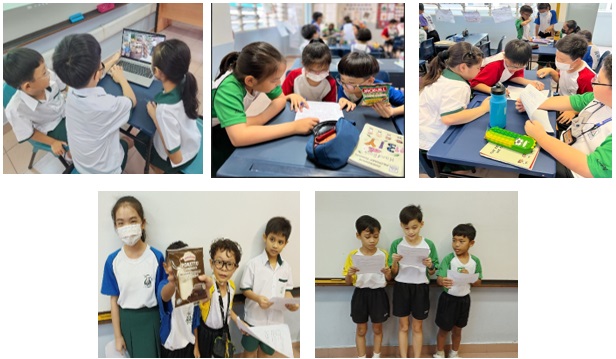
P1 – P6 Self-Directed Learning (SDL) Day
The school provides opportunities for students to engage in self-directed learning and extension of learning and exploration of their interests (empowered to take charge of their own learning). During SDL Day, the students were provided the authentic platforms across the curriculum and co-curriculum to live out school values and demonstrate SE competencies in the process of working with one another. At the end of the day, they engage in regular reflection on what they have learnt and how they have applied their learning. They also learn to assess themselves and give feedback to their peers.
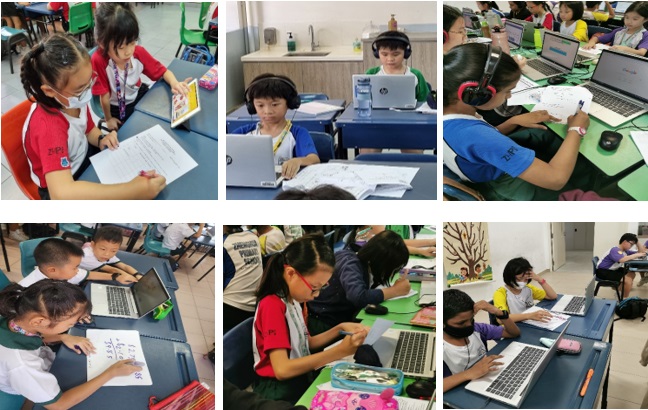
Watch the video – P2 students explaining on their choices for their task.
P2 SDL - On the topic of Money
Play And Learn Math (PALM) @ the Classroom - P1 to P6
To inculcate the love for the subject, the Mathematics Department organises PALM @ the Classroom for our students. The programme aims to:
-
provide more opportunities for students to be more engaged during Math lessons.
-
inject fun into lessons, besides having hands-on activities.
-
guide children to make meaning out of what they learn through purposeful play.
-
help students manage their ‘real-world’ problems, (for example, taking turns).
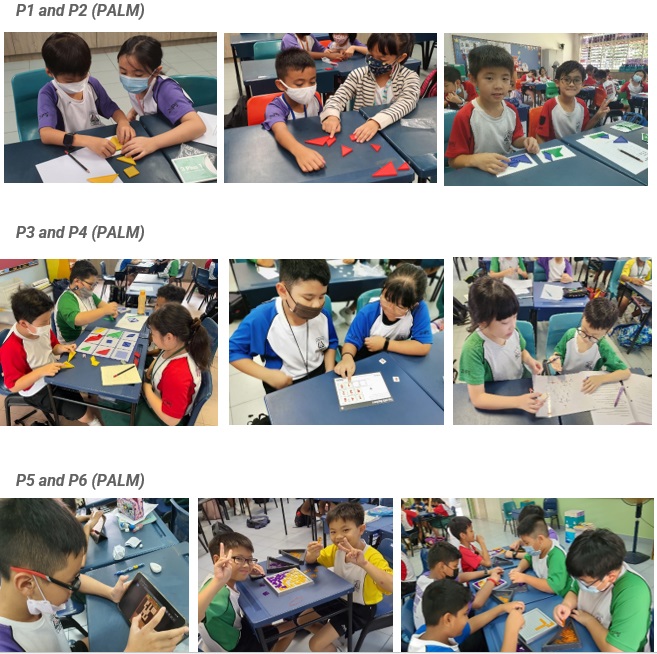
Mathematics Learning Trail - P1 to P6
During the trail, students will be exposed to mathematical problem solving in a real-life situation. Students will need to apply concepts learnt in the classroom curriculum to solve problems in authentic situations.
| P1 | Math Learning Trail @ School |
| P2 | Math Learning Trail @ School |
| P3 | Math Shopping and Experiential Learning Trail |
| P4 | Interdisciplinary Learning Trail @ Gardens by the Bay |
| P5 | Eco-Math Learning Trail |
| P6 | Experiential and Financial Literacy Trail |
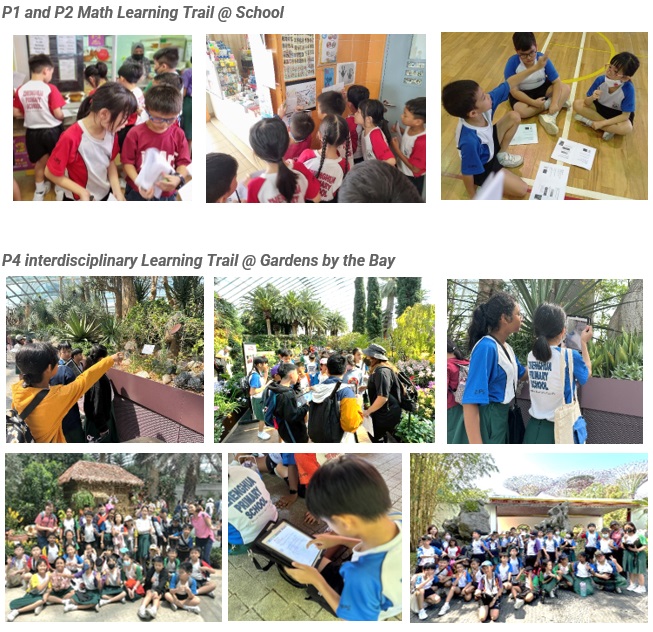
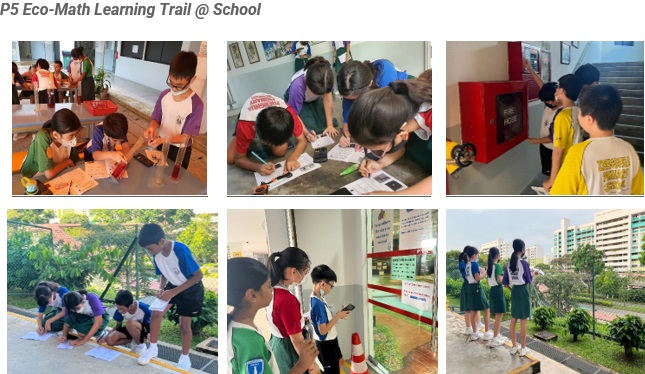
Integrating Art in Mathematics ( I AiM)
I AiM (Integrate Art in Math) is an enrichment programme that infuses Art into Mathematics. The rationale of the activity is for students to better appreciate Mathematics through Art, have an awareness of applications of Mathematics in Art and for them to display their creativity through artefact creation or design. This year, I AiM used the concept on ‘De Stijl’, which characterized by the use of rectangular shapes and primary colours.
| Level | Art Concept | Math Concept |
|---|---|---|
| Primary 1 | Colors -Primary colours |
Shapes |
| Primary 2 | Colors -Primary colours |
Shapes Logic |
| Primary 3 | Visuals with shapes -Primary colours |
Shapes Visualisation |
| Primary 4 | Visuals with shapes -Primary colours |
Shapes Visualisation Logic |
| Primary 5 | Patterns -Primary colours |
Shapes Patterns Visualisation |
| Primary 6 | Patterns -Primary colours |
Shapes Patterns Visualisation Logic |

P5 Little Bakers Programme
To foster the joy of learning and nurture the spirit of Entrepreneurial Dare, the Math department embarked on a specially designed programme for our Primary 5 students. The Little Bakers Programme aims to engage our students through fun and hands-on baking experience and provide them with the opportunity to appreciate and apply Mathematics and Science concepts in real life.
Our little bakers need to use Mathematics when measuring and weighing ingredients, conversion of units, calculating ratio when making changes to recipes. They also have to apply Science concepts such as heat and temperature. Through this programme, students will understand how the concepts and skills learnt during Mathematics and Science lessons affect the quality of cookies they are baking.
The pictures below show students having fun baking different types of cookies.
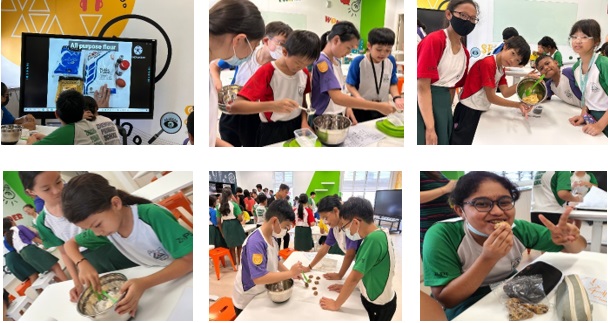
Math Olympiad and Investigative Math Programmes for selected P4, P5 and P6 Students
The objective of the programme is to equip our upper primary students with mathematical problem-solving techniques and a creative mindset. They will also be trained and honed for competitions such as Singapore Math Kangaroo Contest (SMKC), Singapore and Asian Schools Math Olympiad (SASMO), Singapore Mathematical Olympiad for Primary Schools (SMOPS) and National Mathematical Olympiad of Singapore (NMOS).
